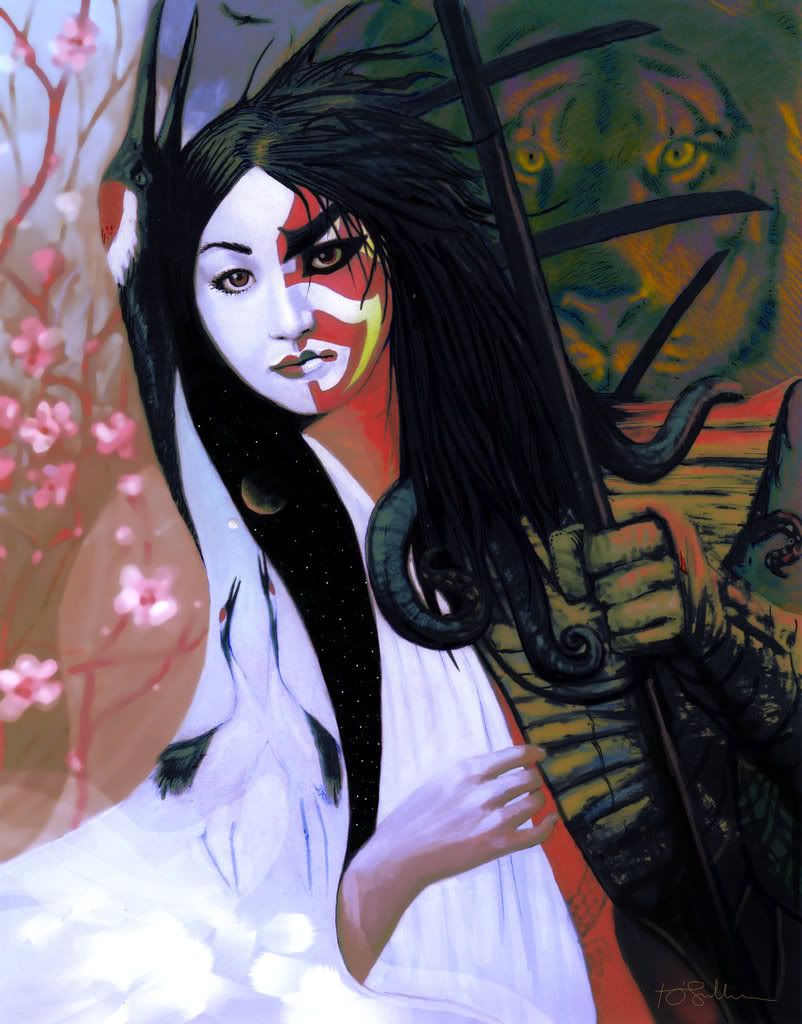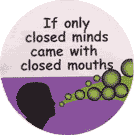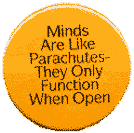We often talk about the practice of budo but what exactly is
budo and what is its purpose? My current understanding of budo is this:
At the heart of budo is the premise that the biggest battle
we face in our lives is not with the enemy outside but that which resides
within ourselves – the ego. Through hard physical training we come to know our
true selves and become more able to defeat the ego. The reduction or control of
ego is essential to allow our true selves to be nurtured and developed. This
developing of the true self allows us to reach our full potential in our daily
lives: at work, home, relationships, friendships and other activities we are
involved in.
Ego is an interesting concept; it
has several definitions related to the human psyche and I think that only one
of them is relevant to the subject of budo. Ego is defined as: The self,
especially as distinct from the world and other selves. Clearly budo is
not about trying to lose one’s sense of self. Ego is also defined as: an appropriate pride in
oneself; self-esteem. We can all
agree that self-esteem is important to our sense of self-worth and happiness
and an appropriate level of pride in
oneself keeps us clean and sociable, provides a desire to keep healthy and gives
us motivation to do things well. So budo is not about ridding ourselves of this
type of ego either. Thus it must be about the third definition: An exaggerated sense of self-importance; conceit.
So, some ego is necessary for normal human functioning and
good mental and physical health but a surfeit of ego tips over into
self-importance, conceit and perhaps an unwarranted sense of entitlement – this
is what the budo practitioner is trying to rid themselves of. But why? What’s wrong with egotism? We need to
answer this question because if you don’t see a problem with excess pride,
vanity or an exaggerated sense of self-worth or entitlement then you’re not
ready to take on the challenges of budo.
Excess ego damages both yourself and others. It damages
others because ego is inherently selfish; the egotist puts his/her needs before
others. The need to acquire wealth and status may be overwhelming and the
egotist may become ready to lie, cheat or just display shear ruthlessness to
get what they want (or think they deserve) in life. The egotist may neglect
family and relationships in pursuit of personal goals leaving a trail of
unhappiness behind him/her. The egotist
may also think nothing wrong with acquiring a surfeit of the world’s resources
(property, money, land etc) without concern for how this may affect other
people. In essence the egotist’s sense of entitlement can impact negatively on
other people.
Ego is also damaging to the self because it limits the
opportunity for real self-development – development of the true self. Ego lets
the true self hide behind bluster and boasting; it stops you from learning new
things because you already think you know them; it makes you compete with
people in environments where you should be cooperating (e.g. work colleagues or
even with your neighbours – got to have a
better car on the drive than they do?) While your ego is busy controlling
your behaviour your true self is just languishing in the background, unloved
and un-nurtured.
How do we tell the difference between what is ego and what
is truly us? Well, one tell-tale sign is the way we focus on tasks. Ego tends
to be driven by outcomes – reaching the goal is more important than how we get
there. You got the big car, big house, pots of money, pile of trophies or whatever
it is you wanted and you didn’t really care what you had to do, or who you hurt
to get it – that’s ego.
On the other hand the true self is driven by process – the need
to do a good job regardless of reward. You do your job to the best of your
ability because that is what you expect of yourself and that is what you
contracted to do with your employer – seeing your company thrive or your
clients happy with your service is its own reward. Working hard at your
relationships – each partner giving selflessly to the other (and therefore each
partner also receiving) builds a strong, happy environment in which both
partners can thrive. Training hard in the dojo for the pleasure and challenge
of getting better and better, revealing the courage, persistence, determination
and focus needed to improve will lead to its own intrinsic rewards.
If you focus on the process the outcomes will reach
themselves but more importantly your true self will have developed as you strive
to learn the skills needed to do your job well, showed compassion, trust and
integrity in your relationships and revealed the positive aspects of your
character through hard physical training.
Does this mean that every man or woman who has a fast car,
big house, well paid job or lots of trophies is an egotist? Of course not, many
altruistic people who have worked hard to develop themselves and do an
excellent job, showed honesty and integrity in all they do have been rewarded
with good salaries that can buy some of the luxuries of life. Many of these
people give back to society through philanthropic acts of generosity. For these
people the process of how they lived and developed themselves was more
important than achieving outcomes – the outcomes just followed.
Budo teaches you to focus on the process of training rather
than the outcomes. Your ego wants the outcome (black belt, trophy, fame,
recognition, money); your true-self wants simply to be the best it can in your
chosen martial art and in every aspect of your life. If positive outcomes follow then great but
your true-self should not desire the outcome at any cost!
There isn’t room in your body for both the inflated ego and
your true self – one of them has to go. Which will you choose? Are you ready for the budo challenge?

This work is licensed under a Creative Commons Attribution-Noncommercial-Share Alike 2.0 UK: England & Wales License.




Nice article, Sue.
ReplyDeleteI think ego, more specifically egotism, is what really turns me off with BJJ and MMA. It is the silver-back gorilla, alpha-male mentality that UFC and Spike TV have marketed so effectively and, sadly, a whole generation of have fighters adopted which turns me off to those styles and venues. The athleticism is amazing, but I can do without the chest thumping.
-Brett
Hi, Sue: My comment is more about the term budo today. As to the entirety of your post I can not find anything I would not agree with or that needs any further comments other than "job well done!"
ReplyDeleteNow Budo:
Budo as it is understood today is supposed to be a result of the dying out of the samurai. It came about due to the changes from the most often aggressive, combative and deadly lives they lived before the "do" was added. It is my understanding that samurai at the most before the advent of the concepts called budo today were mean, aggressive and would do violence at a moment's instance.
Apparently the changes and the lessening of the ability of samurai to enter into such contests that tested them along with a ego pride driven need to dominate, etc. there was no real "way" other than the sword, spear, bow, etc. skills used as warriors. It, to me, sounds a bit like the aggressive and often lacking a certain moral underlying foundation we see in things today.
Then again, what the heck do I know. My recent book reading on Samurai, see my library blog for the last entry, solidifies or validates this type of thinking to a certain point. I am sure many who follow the budo path today will disagree.
In other words, before this came to being, samurai were thugs and bullies, etc. then came a need to change so the samurai ways would not fall into oblivion.
Brett, yeah...and the women look more like porn stars than martial artists.
ReplyDeleteCharles, I'm sure you're right about the samurai, particularly in the older days of the samurai and amongst the lower ranks. We tend to romanticise them a bit in the West. I see the practice of budo (rather than bujutsu) as being a more modern thing (as in last 150 years or so).
Made me laugh with that one, Sue.
ReplyDeleteI'm pretty much OK with the female fighters looking the way they do (to a certain point), and this for obvious reasons.
What annoys me (somewhat off topic) are ads like the one I saw of a Victoria's Secret model wearing boxing gloves and panties! It was so obvious, from the girl's body type, that she got skinny due to starvation, not exercise.
I pointed this out to my wife and she even laughed at the model's complete lack of muscle development juxtaposed with the "fighter" image she was cast in.
-Brett
Brett, we're not so easily fooled by these ads, even female martial artists should look more hench than dench! (My teenage son would curl up in embarrassment that I just used such teen speak. LOL)
ReplyDeleteI dont think ANYONE is fooled by those ads.
ReplyDeleteMust be regional teen-speak; never heard the phrase before.
Brett, Just for your information and to prove I'm a 'trendy mum', hench means 'fit and well muscled' and dench means 'good or attractive'. Well I think that's what it means!
ReplyDeleteHi SueC,
ReplyDeleteI'll resume two important terms as I understand them.
Budo is they way to accept death when somebody has to choose between to live or die. There resides the art of war of a samurai. And,
Zen, is part of budo. By practicing zen we look to destroy our ego. And I don't see there's a bad and a good one, just an ego.
I see ego as a false image of us. An image that others and ourselves have created for us to be exposed to the others. And, after some time we also start believing that we are that false image of us.
I find this similar to as when we go to take a picture of us and we were our best shirt, comb our hair pose our best face to get a good picture of that we will show to others. Are we really this person we want to show of us?
Let's see another picture in different moment. After a good training they of karate somebody took a picture of us exactly when we were not prepared for it. Our face could show pain and or happiness on a sweat face.
Which picture is the one closest to us?
Somebody told me the moment when we are really happy this is our true selves.
Zen, by meditation and for us, working hard on katas takes us to the way of destroying the ego. And that's what I understand the Do of Karate do.
I really enjoy your blog.
Sensei Jorge
Hi Sensei Jorge, I remember reading somewhere that Samurai were more likely to live and survive a battle if they fought as if they were prepared to die. If they went into battle with the mindset of wanting to live then they weren't so committed to the fight and were more likely to make mistakes and get killed. Like you say - there resides the art of war!
ReplyDeleteThank you for sharing all your insights on ego and true self, you offer a very helpful way of looking at the concept of budo.
Hi Sue, I was pointed to your article by a fellow martial artist. I like your thoughts on process versus outcome. I spoke at length with a practitioner of Kyudo - archery and the philosophy was somewhat counterintuitive. The arrow hitting the target was irrelevant. Form was everything. But, but having perfected the form, you are sure to hit the target.
ReplyDeleteI'm a sword swinger - Kendo/Iaido and the application of Budo is the same. In perfecting your swing you are polishing your spirit and cutting away the fears and doubts that interfere with our growth as beings. I am just beginning to grasp the concept of mushin, a blank, but open mind that releases conscious thought and ego so the body can react purely.
Alice
Hi Alice, I think that arts like kyudo and iaido are probably the purist forms of budo today and offer the best way of developing the character, probably because they don't concern themselves with sport or practical self-defence issues. Most other arts are a mix of budo, bujutsu and sport or just bujutsu and sport. Thanks for commenting.
ReplyDeleteThis is cool!
ReplyDelete